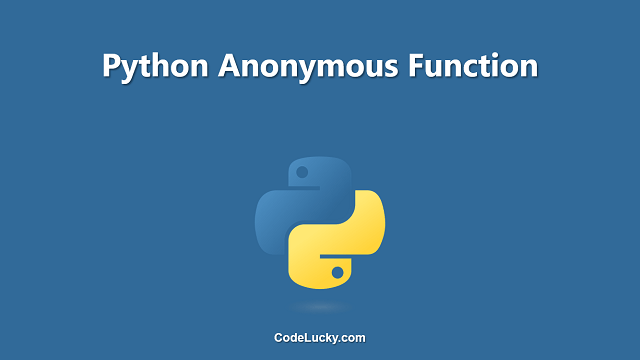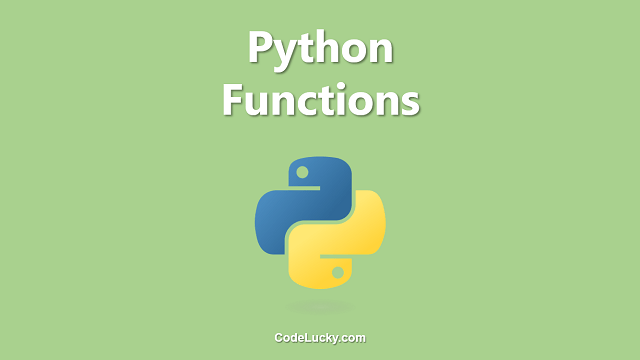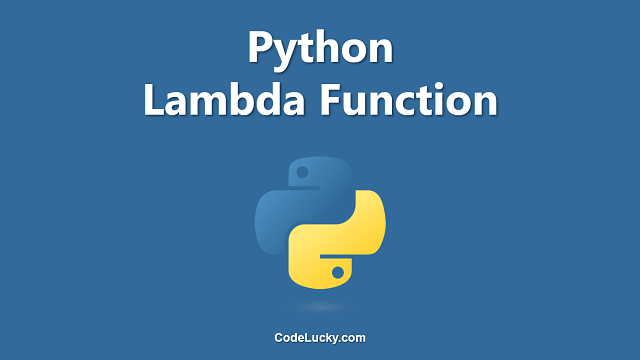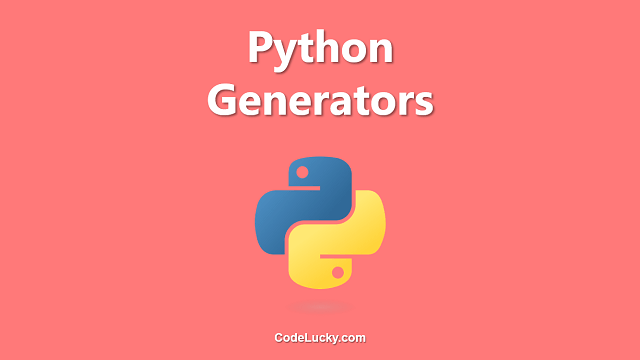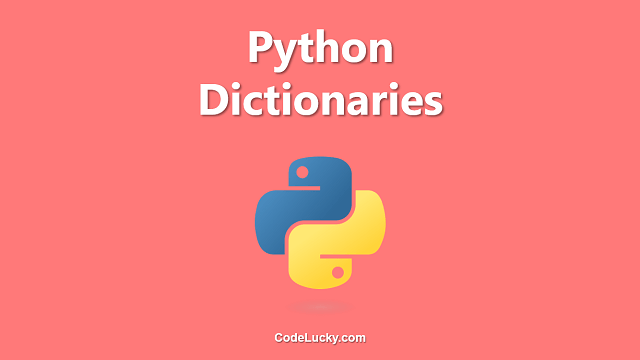In Python, an anonymous function is a function that is defined without a name. Anonymous functions are also known as lambda functions. These functions are small, concise, and quick to define. They are most commonly used when a function is needed only once or when the function is only required in a specific context, such as in a single method. In this article, we will explore what anonymous functions are, how they are defined, and how they can be used in practical examples.
Syntax of Anonymous Function
The syntax for defining an anonymous function in Python is as follows:
lambda arguments: expression
Where “arguments” are the inputs to the function and “expression” is the operation to be performed on the inputs.
Example of Anonymous Function
Here is a simple example of an anonymous function that adds two numbers:
sum = lambda a, b: a + b print(sum(5, 3)) # Output: 8
In this example, the anonymous function takes two arguments, “a” and “b”, and returns the sum of these two numbers. The function is assigned to a variable “sum” and can be used just like any other function. This function can also be used as an argument to other functions, such as the built-in “map” function, which applies a function to each element of an iterable object:
numbers = [1, 2, 3, 4, 5] squared_numbers = list(map(lambda x: x**2, numbers)) print(squared_numbers) # Output: [1, 4, 9, 16, 25]
In this example, the anonymous function “lambda x: x**2” takes a single argument “x” and returns the square of the number. The “map” function applies this anonymous function to each element of the list “numbers” and returns a list of the squares of these numbers.
Let’s consider a scenario where we have a list of strings and we want to sort the list based on the length of each string. This can be achieved using a lambda function as follows:
strings = ["apple", "banana", "cherry", "date"] sorted_strings = sorted(strings, key=lambda x: len(x)) print(sorted_strings) # Output: ['date', 'apple', 'banana', 'cherry']
In this example, the lambda function “lambda x: len(x)” takes a single argument “x” and returns the length of the string. The built-in “sorted” function takes the list of strings and sorts it based on the key function, which is the lambda function that calculates the length of each string. This results in a sorted list of strings based on their length.
It’s important to note that the same result could have been achieved using a regular, named function, but the anonymous function provides a more concise and readable solution in this specific scenario.
Advantages of Anonymous Functions
Here are some of the advantages of using anonymous functions in Python:
- Concise and easy to write – Anonymous functions are small and simple to define, making them ideal for one-time use or for use in specific contexts.
- Flexible – Anonymous functions can be used as arguments to other functions, making them very flexible and reusable in a variety of contexts.
- Avoid naming conflicts – When a function is only needed once or in a specific context, using an anonymous function avoids naming conflicts with other functions in your code.
Disadvantages of Anonymous Functions
Despite their many benefits, anonymous functions also have some disadvantages that you should be aware of:
- Hard to debug – Because anonymous functions are small and do not have a name, they can be difficult to debug and trace errors.
- Limited functionality – Anonymous functions can only perform a single expression, so they are limited in their functionality compared to named functions.
- Not suitable for complex operations – If a function is large or complex, it is best to define it as a named function rather than an anonymous function for better readability and maintainability of your code.
Conclusion
In conclusion, anonymous functions are a powerful tool in Python for quick and concise functions. They are ideal for one-time use or for use in specific contexts where a function is only needed once. However, they should not be used for complex operations or for functions that will be used repeatedly, as they can be difficult to debug and have limited functionality. Overall, anonymous functions are a useful tool to have in your Python toolkit and can greatly simplify your code when used properly.

